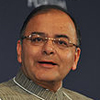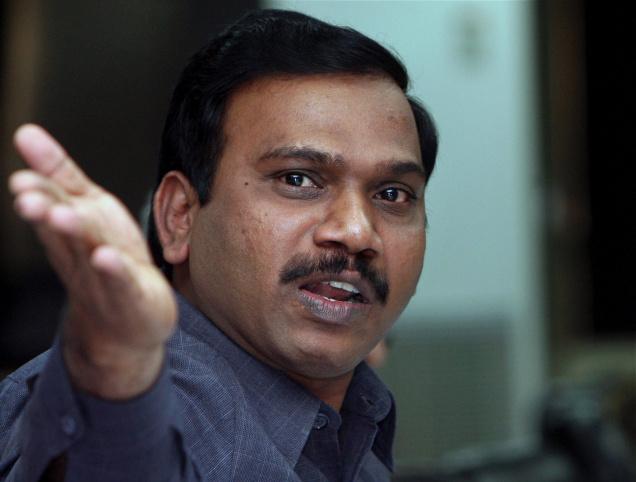Arun Jaitley on how the Manmohan government’s three ministers bungled up the showcase story
India’s telecom sector was a ‘showcase’ for the success of economic reforms. When the government opened up the sector in 1994-95 to the private sector, there were many sceptics about the private sector being put in control of communications. Within years every critic was proved wrong. Public sector monopoly had led to a sluggish growth of the sector. India’s tele-density at the time of opening out was 0.8 percent. Less than one out of every 100 people had access to a telephone. Contrary to popular perception mobile telephones proved to be a boon for the common and weaker sections. It hugely improved India’s tele-density. The waiting list became a part of history. Costs were radically slashed down; linemen were no longer required. Most Indians felt better connected.
There were apparent mistakes made in the initial years – though made honestly. The licence fees regime could only ensure costlier telephony. The National Telecom Policy 1999 formulated by the NDA government corrected these mistakes. The switch-over to revenue sharing reduced the cost to the operator and increased the volumes substantially. The increased volumes ensured much larger revenue to the government and cheaper services to the consumers. Technology began to converge between basic telephony, limited mobility and full mobility. This led to universal access licences which were common to both the basic and the mobile services.
Telecom became the most visible face of the success of economic reforms. They attracted investments, increased employment and India became the fastest growing telecom economy in the world offering cheaper services. The UPA government inherited this success story of telecom in 2004 and could only make it better.
Regrettably, the entire enthusiasm inherent in the success story has disappeared. Though services have substantially expanded, there are no takers for the spectrum auctions now. Fresh investors are reluctant to look at this sector and those who have invested in the sector despite having earned profits must be regretting the environment in which they function. How did this success story turn sour?
The prime minister initially gave the responsibility of telecom department to a minister who apparently had a conflict of interest. Criminal cases against the first telecom minister of the UPA are under investigation. After he was dropped, his successor from the same party, the DMK, decided to run havoc with the department. In 2007-08 spectrum was allocated at rates determined by the market mechanism of auction in 2001. The sector had hugely expanded in seven years and the value of the spectrum had substantially increased. Despite being cautioned that the price determined at the time of allocation be freshly undertaken either through auction or through indexing, he decided to allot the spectrum at a rate much less than the market prices. The mode of allocation was conspiratorial. The goal post was altered half way through. The criterion of first-come-first-served was changed to those who pay the entry fees ahead of others. This information appears to have been leaked out to the most favoured applicants. The result was disastrous. The report of the CAG shattered the confidence in the credibility of governmental functioning. The CBI had to file charge-sheets, and the minister, civil servants and investors were all arrested. The supreme court took the extraordinary step of cancelling the licences. The biggest success story of economic reforms had now become a monumental scam.
Now the third minister was appointed to look after the telecom department. He wanted to get the sadistic delight out of the fact that the scams were not new to the telecom sector under the UPA government. He, therefore, selected a judge of his choice to ‘unearth’ an NDA scam. The judge’s report was sent to the CBI. The CBI has now filed a charge-sheet in the court. The essence of the CBI case relates to the spectrum user charges. When the service expands, the operators need extra spectrum. Under the NTP 1999 additional spectrum charges is to be paid for through revenue sharing. The policy framed in 2001-02 was that on 4.4 mhz the initial start up spectrum a 2% user charge would be paid; up to 6.2 mhz a 3% user charge will be paid and for the entire slab from 6.2 mhz to 10 mhz the charge would be 4%. The entire allegation against the NDA is as to why the slab between 6.2 mhz and 10 mhz was not broken in two and between 8 mhz to 10 mhz an extra 1% charge was not levied.
The spectrum user charges are a tariff fixation. Tariff fixation is an executive function. The executive at a given point of time considers various factors while increasing or reducing tariff or while determining the size of the slabs on which a particular tariff is charged. There is no scientific rationale on which this can be done. Tariffs are fixed on a commercial assessment of the market conditions. The underlying consideration has to be the promotion of the sector. An administrator may well feel that lower tariff can reduce costs and increase the volumes and hence benefit both the sector and the revenues. In this case slabs could have been fixed keeping in mind the parity between the basic and the limited mobility. Subsequent reports of the TRAI appear to have accepted the principle on which these tariffs were fixed. If tariff fixation becomes a ground for invoking the Prevention of Corruption Act clauses such as causing wrongful loss to revenue, every finance minister who reduces the customs or excise duty in the budget may be subject to such an accusation. The CBI charge-sheet names my then colleague, Pramod Mahajan, as a conspirator in tariff fixation. Since he is no more he obviously cannot be prosecuted. As a member of the then government I feel obliged after examining the charge against him to suggest that the charge is absolutely ill-founded and baseless.
The telecom story is a case where the UPA government and the PM have a lot to introspect. Having inherited a ‘showcase’ success story, the first minister appointed by the UPA conflicted his personal interest with that of the sector. His successor got trapped in his own shenanigans. The third minister set out to teach the NDA a lesson. Former civil servants and investors have become his victims. In the process he has damaged the sector further adding to its instability.

